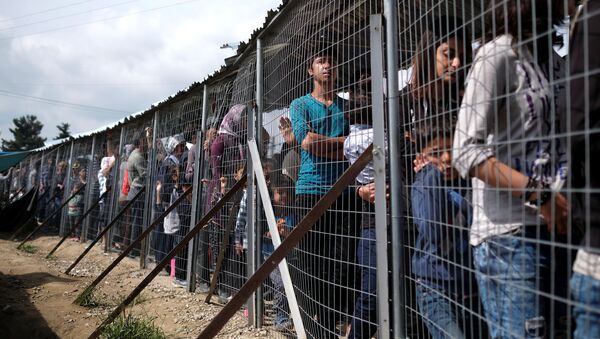"The government has just sent 120 extra police, but they are temporary and simply not enough. Frontex also has to intervene," Dimitris Mavrides, mayor of the border town of Orestiada told the Guardian, referring to Europe's border and coastguard agency.
Currently, Greece's land border with Turkey faces more immigrants than it's coast, according to a UN refugee agency (UNHCR) report, as some 2,900 people are said to have crossed the border in April.
"Our reception facilities are overwhelmed and things are on the verge of spinning out of control. Far more are coming than are actually being registered," Mavrides said.
"Some of those in police detention have been held for more than three months," UNHCR said in a statement. "Conditions are dismal […] the hundreds of people kept include pregnant women, very young children and people in need of medical and psychosocial care."
Since Turkish forces began their military invasion at Afrin, Syria, code-named operation Olive Branch, the Kurdish population in the region has begun fleeing to Greece, according to border registration data.
A new wave of migrants is expected after water levels in local rivers drop with the changing weather.
"We're worried that as the weather improves and water levels go down, more will brave the journey because the river will be easier to cross," said Ruben Cano, head of the International Federation of Red Cross and Red Crescent Societies in Greece.
"We're sending a mission to the area this week. We have relief stocks of blankets, sleeping mats and tents. The government has plans to reopen former camps and expand the capacity of those that exist but experience has told us it may not scale up fast enough."
Curiously, the land border between Greece and Turkey does not fall under a controversial migrant deal struck in March 2016, while it is said to be much easier to cross than the maritime border, the Guardian noted.
"In a boat it can take as little as three minutes to cross and is far cheaper," said Mavrides. "They are coming precisely because it is not part of the deal and because word has got out [that] the situation on the islands is dramatic. If they get here and are processed, they are free to go anywhere on the mainland. We have four buses a day to Athens and Thessaloniki and they are full."
"Clashes erupted on Lesbos this month between Greek extremists and asylum seekers protesting […] their inability to move to the mainland after the country's highest administrative court said it was illegal to impose geographic restrictions on migrants," the Guardian reported.
Local officials refer to the situation on the islands as a ticking time bomb.
"Lesbos has 8,095 migrants and refugees when the corresponding number last year was 3,050," said the north Aegean regional governor, Christiana Kalogirou.
"The islands are like a cauldron ready to boil over," she warned.




